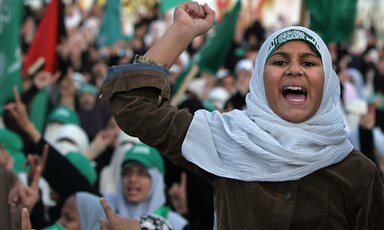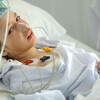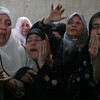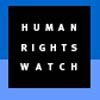
Three killed in strike against PLC member's residence
7 November 2006
Five Palestinians were killed on Tuesday morning, including two in an armed clash between Israeli forces and Palestinian fighters. The other three were killed in an air strike that targeted the house of Palestinian Legislative Council (PLC) member Jamila Shanti in Jabalia refugee camp in the central Gaza Strip. She survived, but her sister-in-law was killed. Medical sources said that the medical crews were finally able to reach the bodies of Hamdi Batsh and Raed Qarm after seven hours of obstruction by the Israeli troops who prevented anybody approach the dead bodies. Batsh and Qarm were killed in an armed clash with the Israeli soldiers. Read more about Three killed in strike against PLC member's residence








